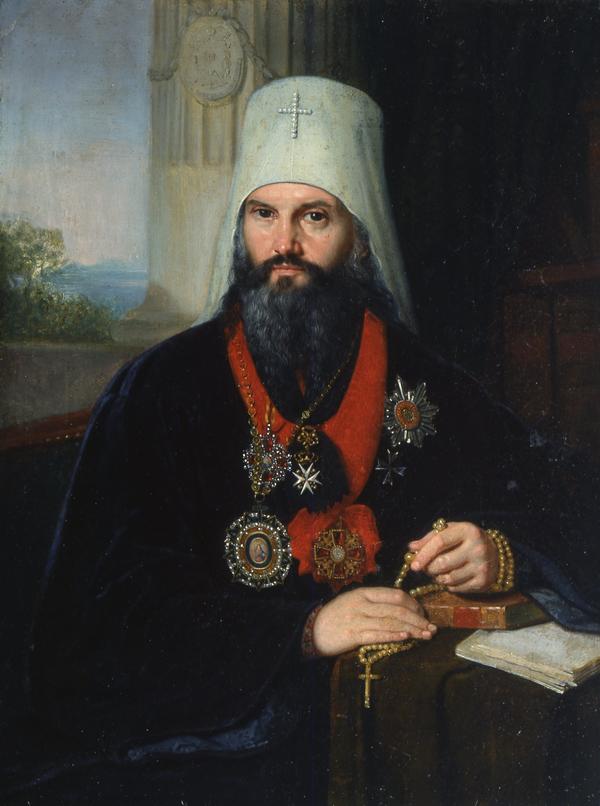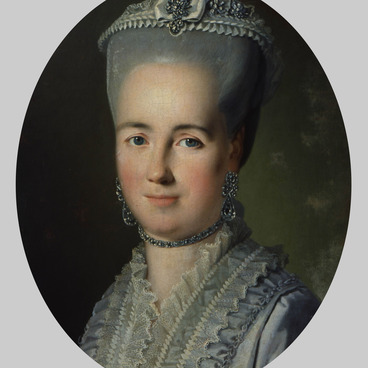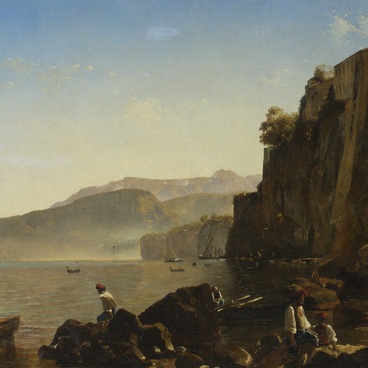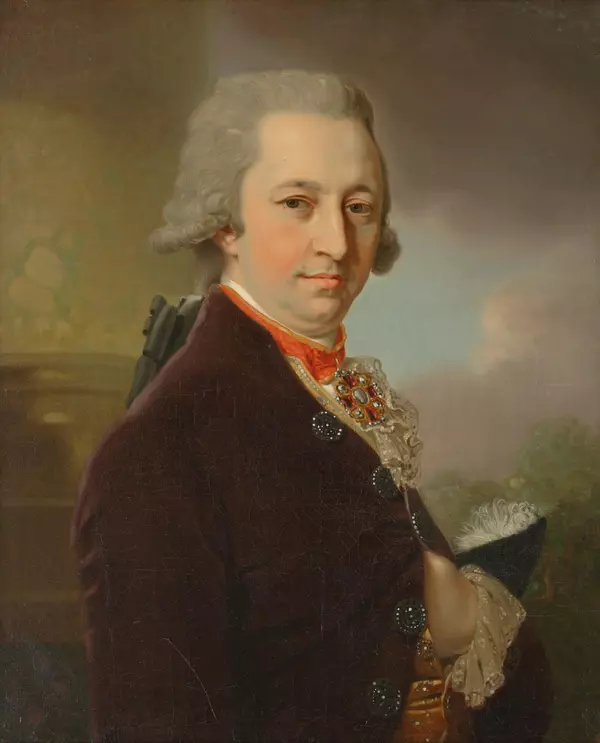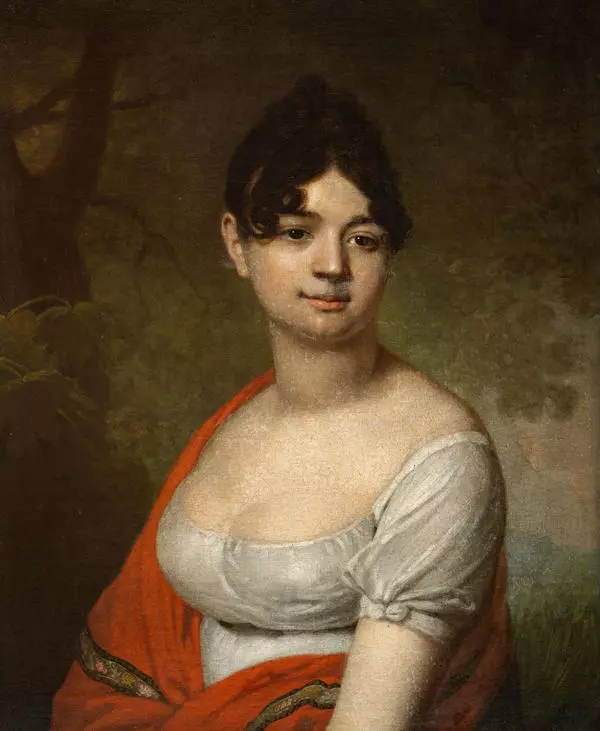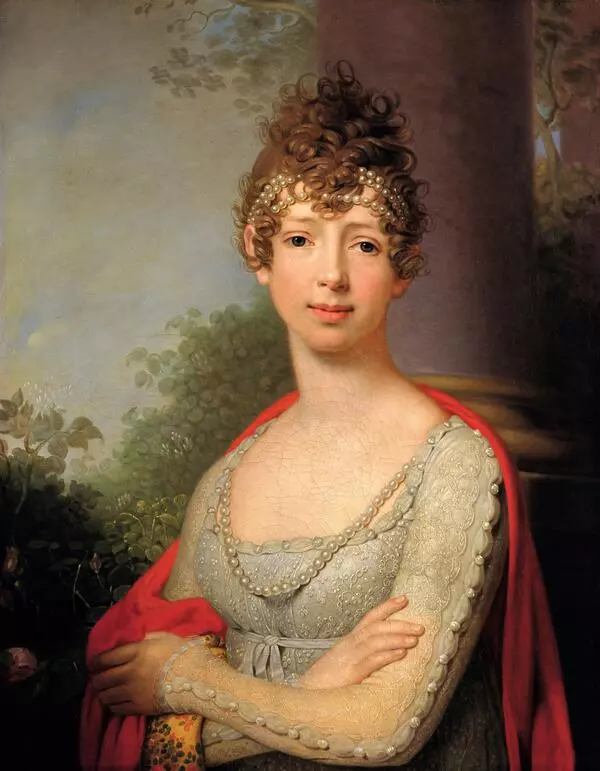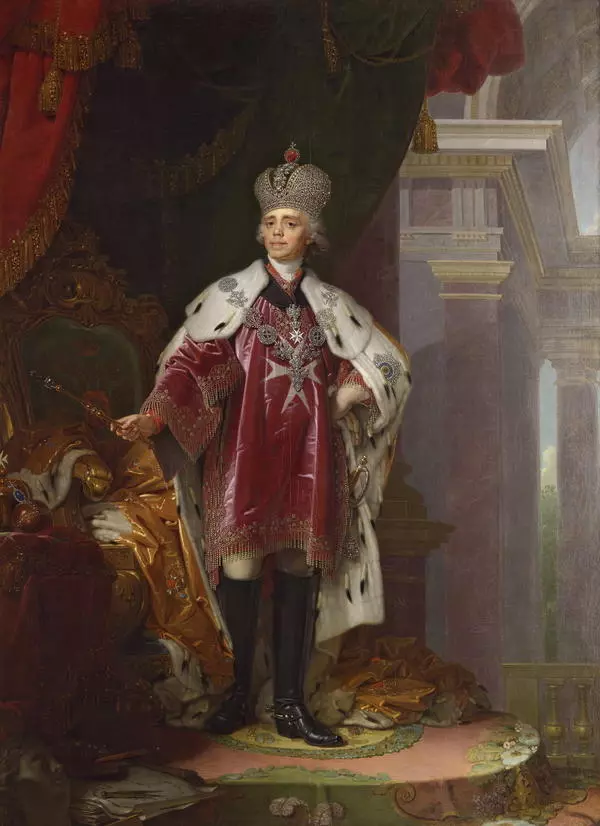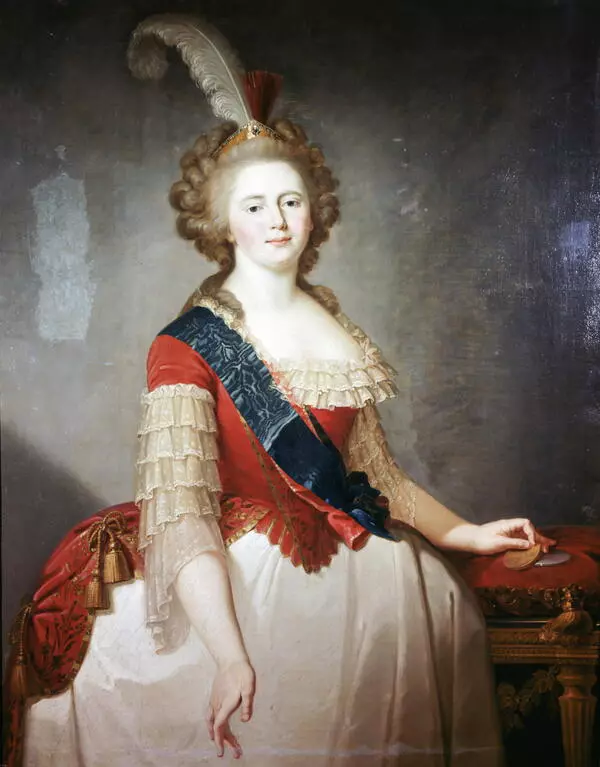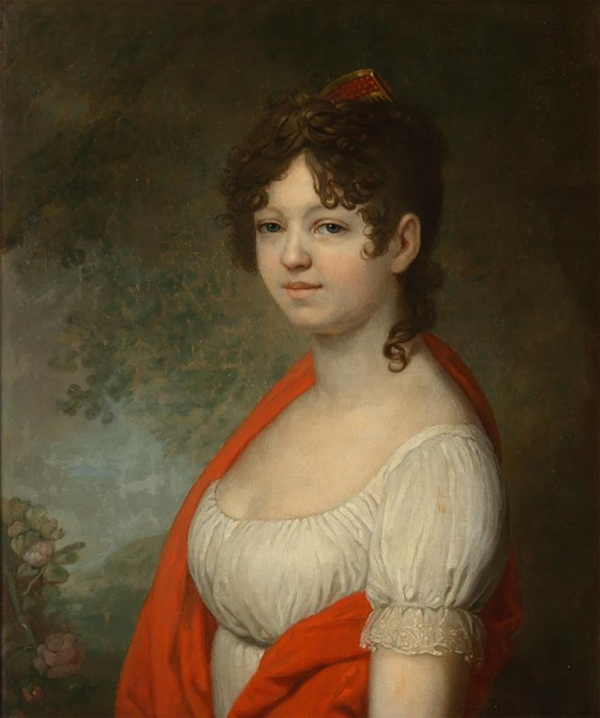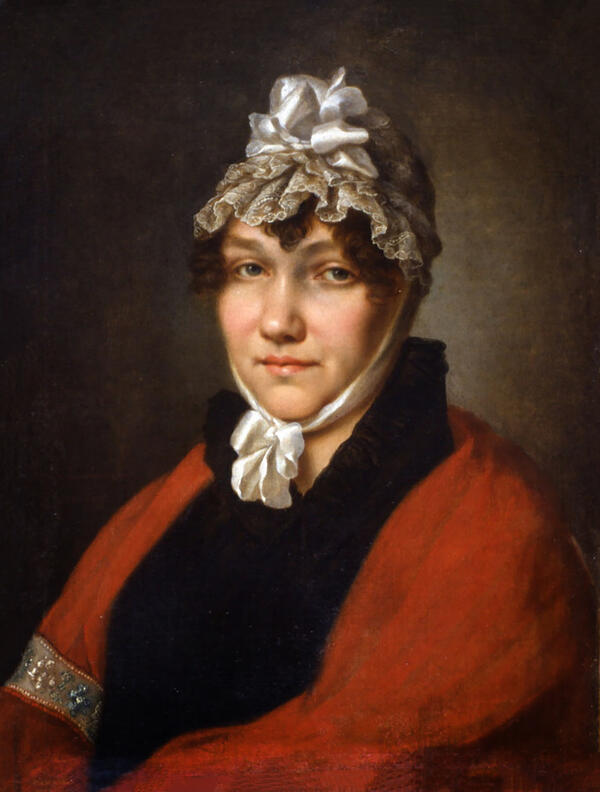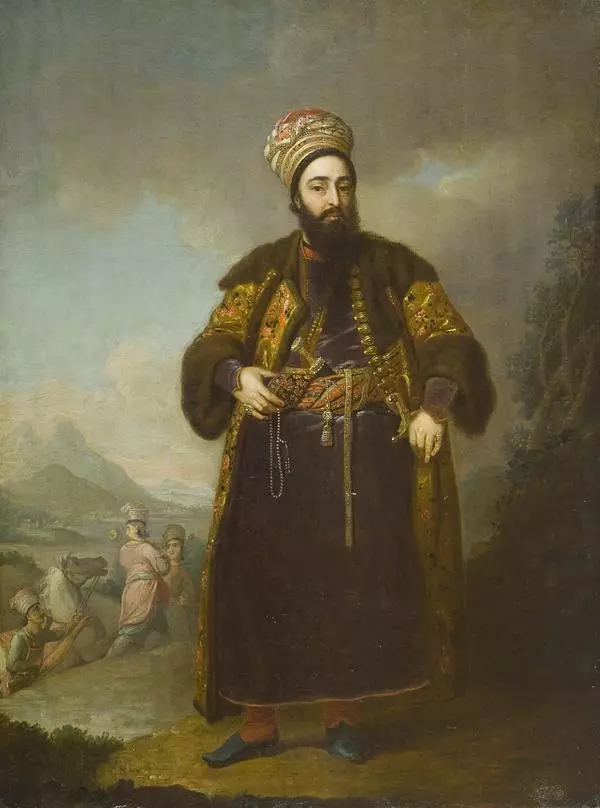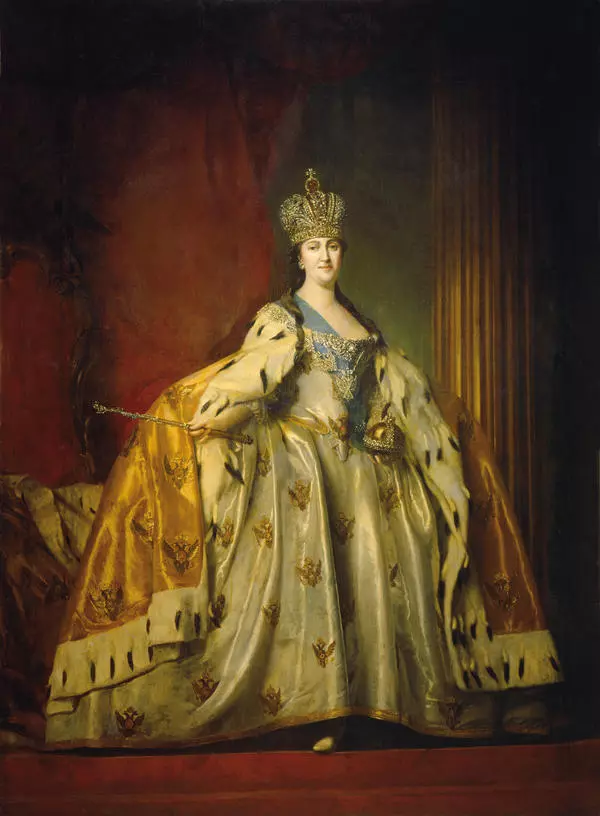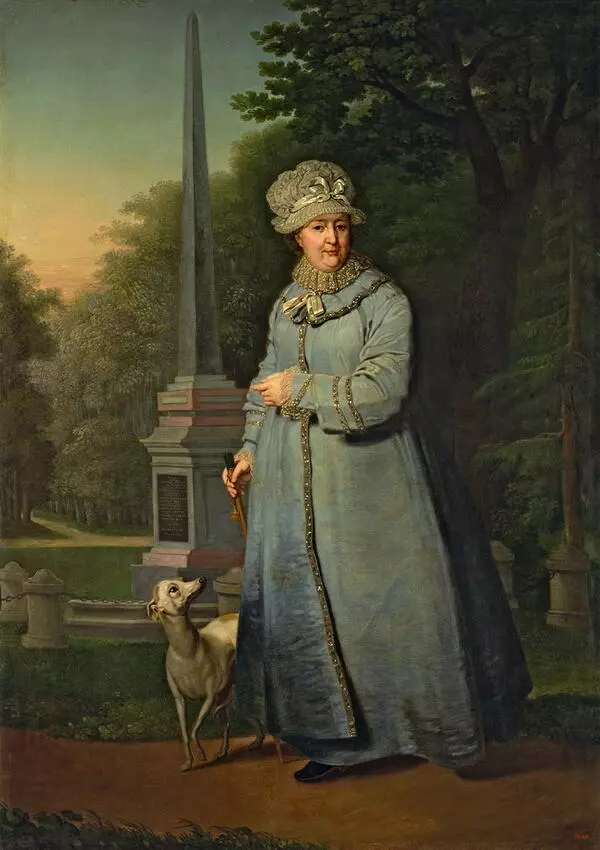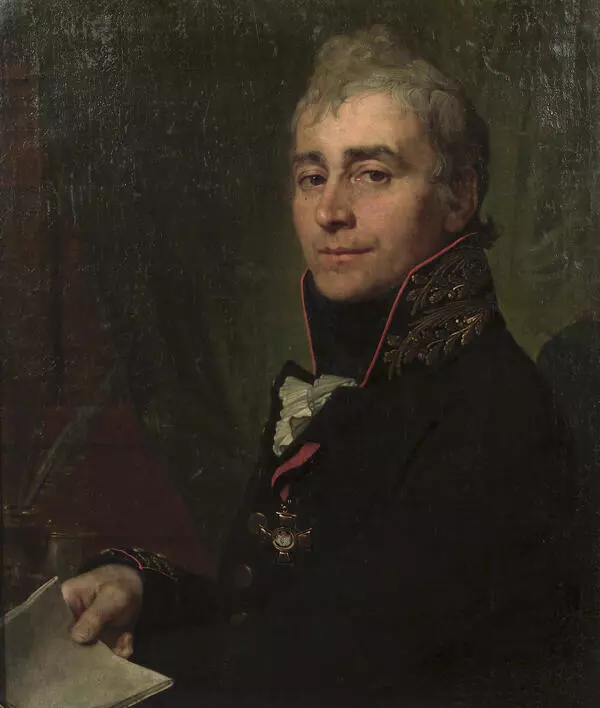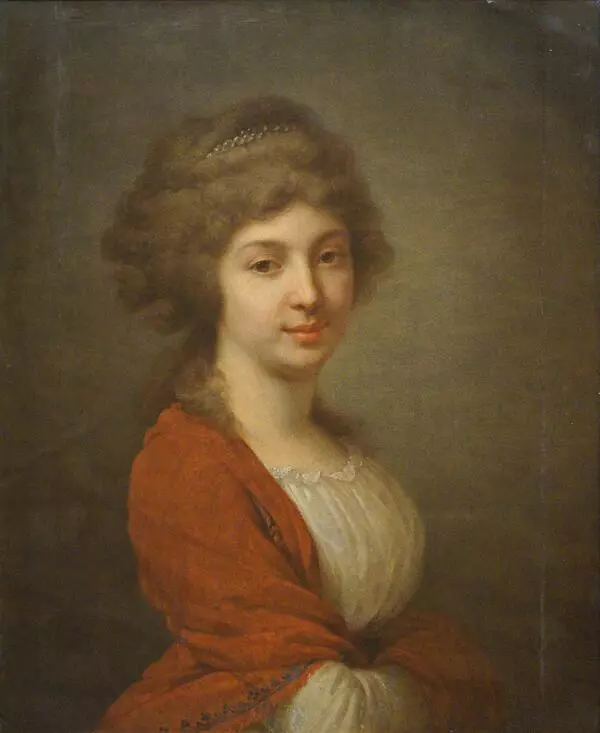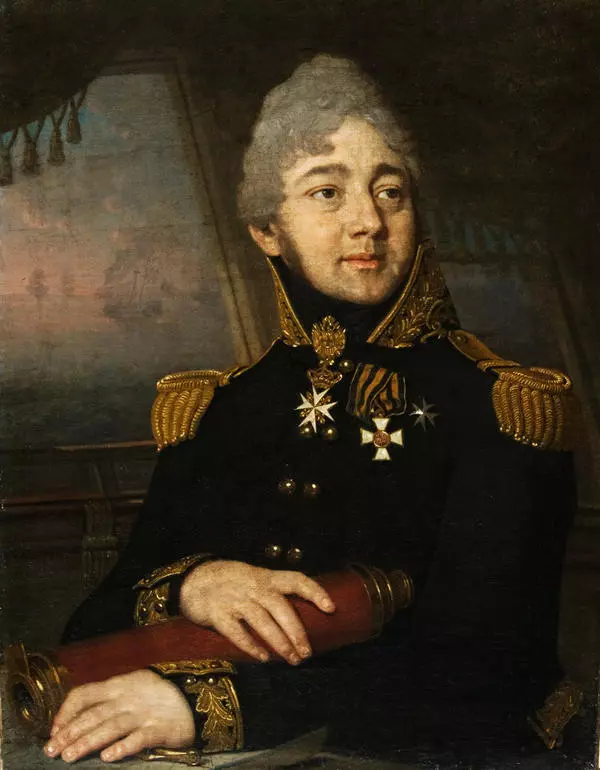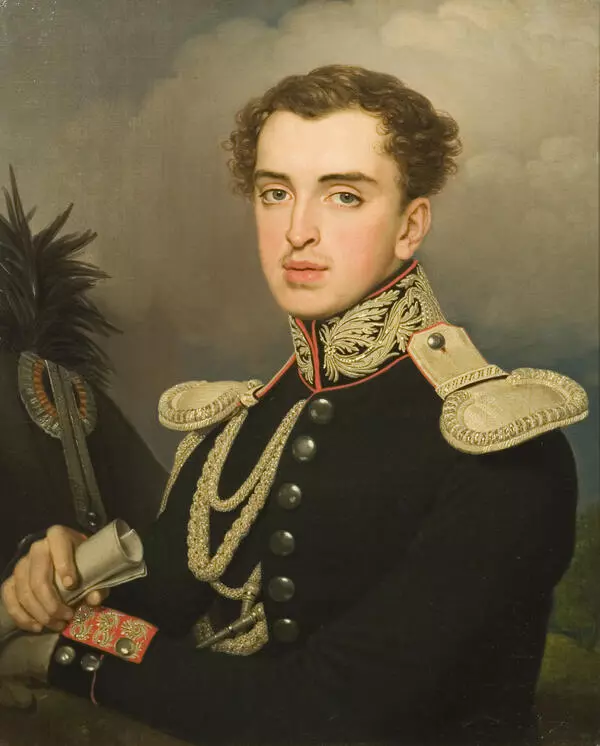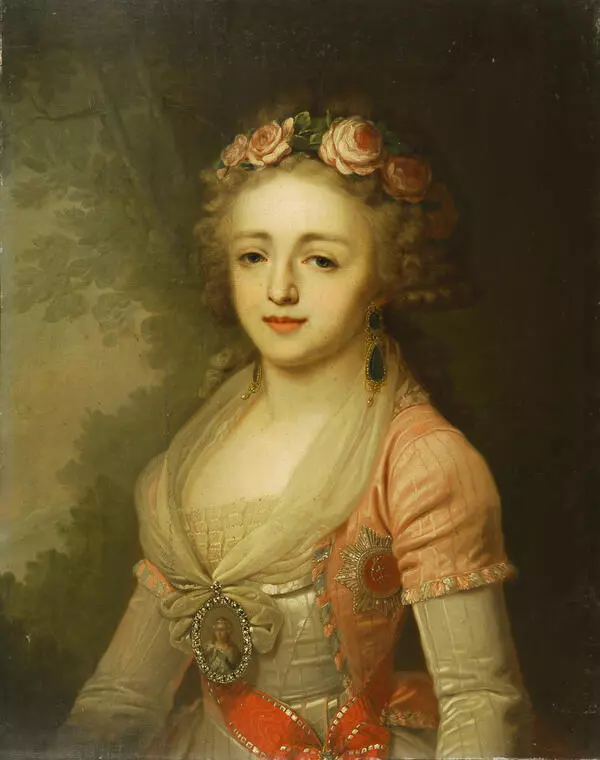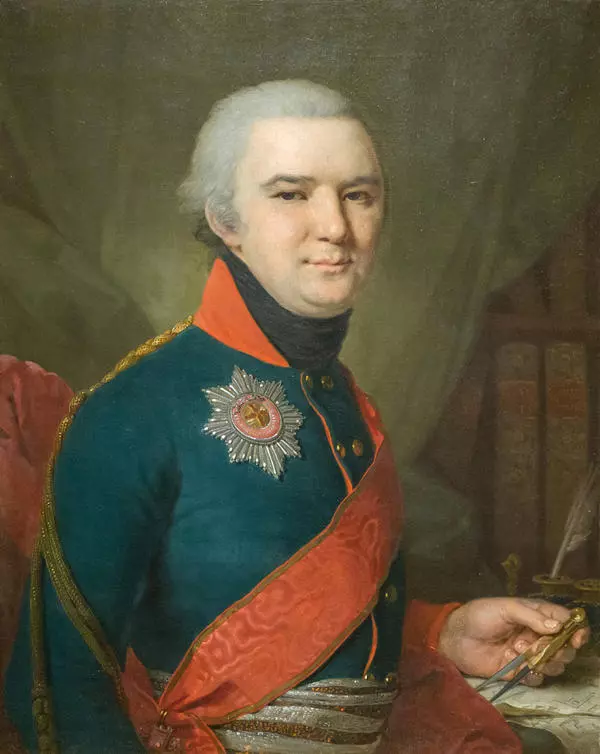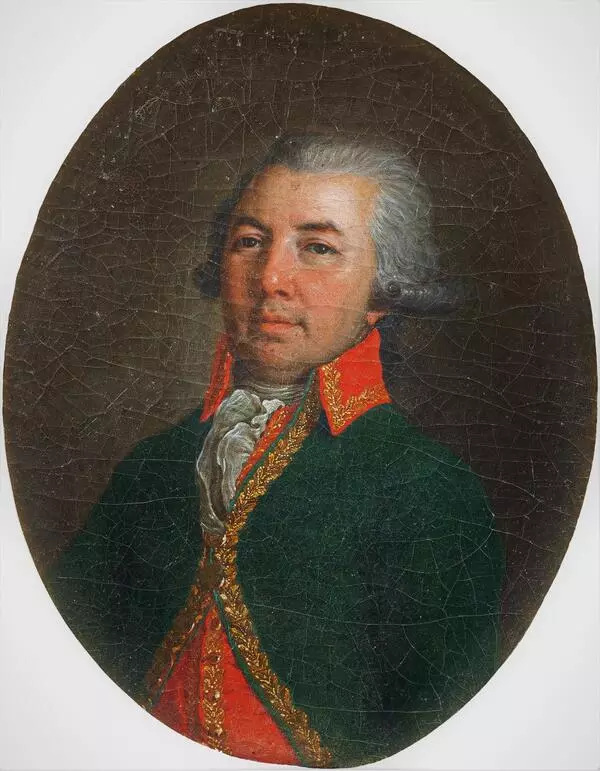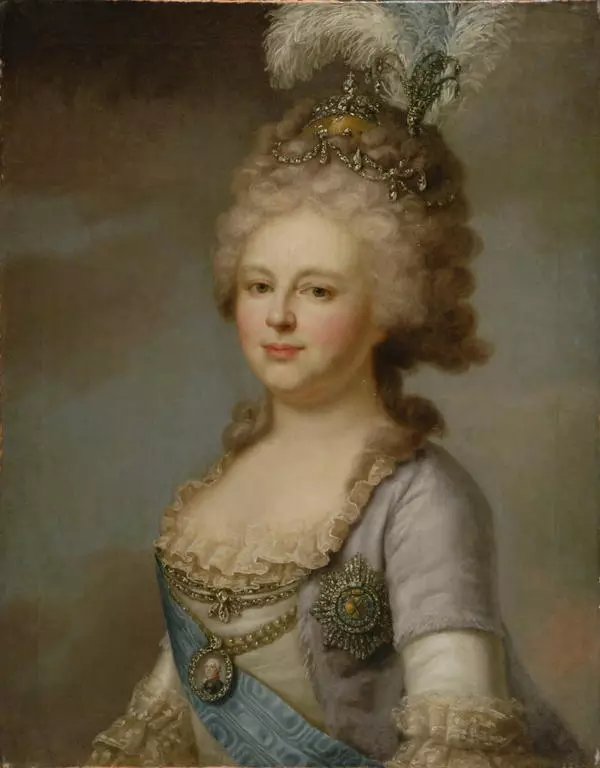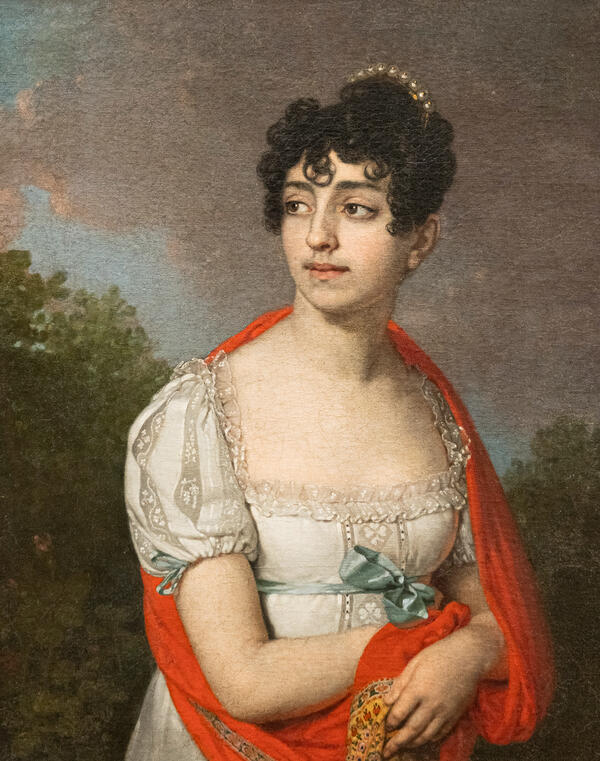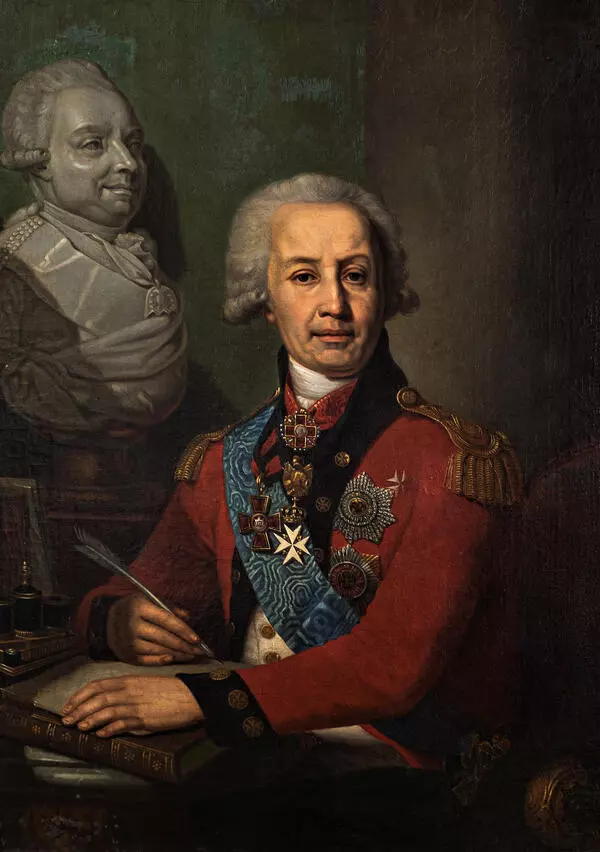Vladimir Borovikovsky was born in Myrhorod in 1757. He received his initial artistic education from his father, icon painter Luka Borovikovsky, and later he honed his skills under the guidance of Austrian artist Johann Baptist Lampi the Elder in St. Petersburg. In 1795 Borovikovsky was awarded the title of the Academician of Painting of the Imperial Academy of Arts.
In St. Petersburg Borovikovsky developed a friendly relationship with members of the artistic salon of Nikolai Lvov, who was an artistic luminary of the Russian Enlightenment, an architect, a graphic artist and a poet. The salon brought together prominent architects, musicians and writers, and it had as its patron Alexander Bezborodko, the president of the Collegium of Foreign Affairs. Through his association with the salon, Borovikovsky often got commissions for portraits from members of famed families: the Lopukhins, Tolstoys, Gagarins.
Borovikovsky painted the portrait of Metropolitan Mikhail (his secular name was Matvey Desnitsky) around 1818. At that time Mikhail became the Metropolitan of St. Petersburg and the Archimandrite of the Alexander Nevsky Monastery. The Metropolitan’s writings, numerous talks, letters and treatises on religious issues were published in ten volumes during his lifetime.
In St. Petersburg Borovikovsky developed a friendly relationship with members of the artistic salon of Nikolai Lvov, who was an artistic luminary of the Russian Enlightenment, an architect, a graphic artist and a poet. The salon brought together prominent architects, musicians and writers, and it had as its patron Alexander Bezborodko, the president of the Collegium of Foreign Affairs. Through his association with the salon, Borovikovsky often got commissions for portraits from members of famed families: the Lopukhins, Tolstoys, Gagarins.
Borovikovsky painted the portrait of Metropolitan Mikhail (his secular name was Matvey Desnitsky) around 1818. At that time Mikhail became the Metropolitan of St. Petersburg and the Archimandrite of the Alexander Nevsky Monastery. The Metropolitan’s writings, numerous talks, letters and treatises on religious issues were published in ten volumes during his lifetime.

